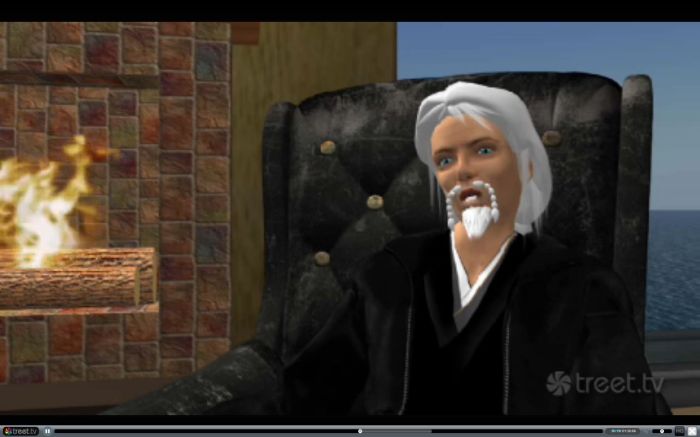On Wednesday March 7th, Jessica Lyon of the Firestorm team sat down with Oz Linden to discuss the recent TPV Policy (TPVP) changes. Originally Oz had asked to appear with Jessica on the last Phoenix Hour, which is normally co-presented by Jessica and Phaylen Fairchild, but it was decided to hold-off on any appearance for a more focused presentation.
That Oz made the offer again speaks highly of his desire to engage openly with the community on what has become something of a sensitive (and in some cases incorrectly viewed, given the way it has been wrongly portrayed as stopping “any” innovation within TPVs) issue, and his willingness to try to provide further clarification on the changes and the reasoning behind them.
I’ve included a summary of the discussion on the following pages. As it is somewhat lengthy and potentially subject to “tl;dr” (shame on you!), I felt it better to provide my own thoughts on the discussion up-front.

While listening to the discussion I was also seeing Twitter comments appear on my screen relating to the posting of the interview video and was – to be honest – surprised at the negative tone of some of the comments being made. Overall, I felt the Oz was open and direct in dealing with the questions and statements directed at him, and he did much to fill-in the blanks. And before anyone starts on the, “But he’s only an employee” tack, I very much doubt that he was in any way speaking in isolation or sans the support for his management. As such, this is precisely the kind of engagement we should be applauding, even if the message may not be entirely what we want to hear, and which LL should be seeking to undertake more regularly.
Some have complained that we “don’t know” any more following the discussion than we knew at the start. To them I’d actually ask, “What more do you want to know?” The boundaries of the TPVP changes have been given better definition – indeed, Oz has provided clearer definitions here, and prior to this meeting. Unless LL produces a set of stone tablets detailing every case, it’s hard to see what more can be said – and it should be remembered that tablets of stone can be as dangerous as having a broad definition. Things do cut both ways.
Sure, what has been said previously, and is said in this discussion, doesn’t provide any safeguards against any fear of how LL might at some point in the future choose to interpret the TPVP – but really, this is an unreasonable expectation. No-one can predict what tomorrow may bring much less a time eighteen months or two years hence, and it is unreasonable to expect any company to give guarantees where the security and growth of their business is concerned. At the end of the day, SL is LL’s business first and foremost – and I applaud Oz for being so frank on the matter of the business / platform relationship – and as such they can change the rules howsoever they like; as such the hammer could be dropped on TPV activities with or without the use of such a policy.
However, I think it fair to say Oz is being sincere both on a personal level and as a representative of the company when he says that LL is not looking to end TPVs, but wants to enhance and grow their working relationship with TPV developers. While it is clear from the phrasing of some of his answers that LL would like to see their effective market-share of users increase in terms of Viewer use, it would be a mistake to attribute the TPVP changes to purely that motivation. It’s fair to say that if that was the goal, LL could conceivably achieve it simply by removing the majority of their Viewer development back behind the curtain, leaving TPVs forever in a catch-up situation.
Nevertheless, the risk of stifling innovation is still there, howsoever small a part the “shared experience” has played in TPV development, simply because of the concerns TPV developers have around the whole aspect of having ideas and proposals accepted by LL as Jessica expresses in the video. This is something that LL need to remain attuned to and seek to demonstrate they will help and support TPV developers when and where they do see an opportunity for developing a shared experience capability that isn’t on LL’s radar or to-do list.
Some will most likely remain dissatisfied with the results of the discussion, which is a shame. While the proof of LL’s commitment to developing and evolving the TPV / LL relationship can only be judged on whatever occurs going forward, there is currently no reason to take what has been said at anything less than face value.
For my part, I would say that Oz’s openness and his candour in dealing with the questions and concerns relating to the TPVP changes is to be welcomed. I hope he does take Jessica up on her suggestion of future discussions of this kind, and that we may yet see LL encouraged to participate in other such opportunities to address user concerns on various matters as openly and directly in the future.


